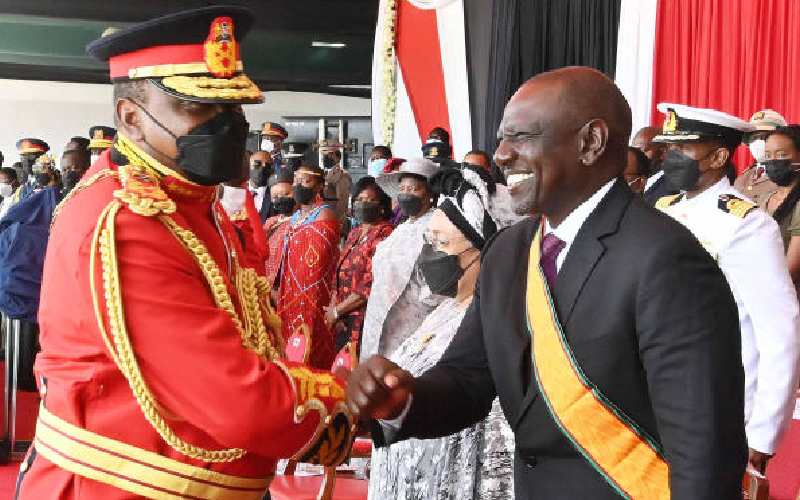×
The Standard e-Paper
Fearless, Trusted News

President Uhuru Kenyatta with Deputy President William Ruto during Jamhuri Day national celebrations at Uhuru Gardens in Nairobi on December 12, 2021. [DPPS, Standard]
On September 10, 2016, President Uhuru Kenyatta and his Deputy William Ruto persuaded 12 parties to dissolve and join the Jubilee Party with a seemingly national outlook.